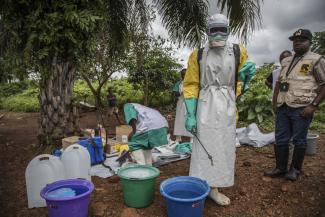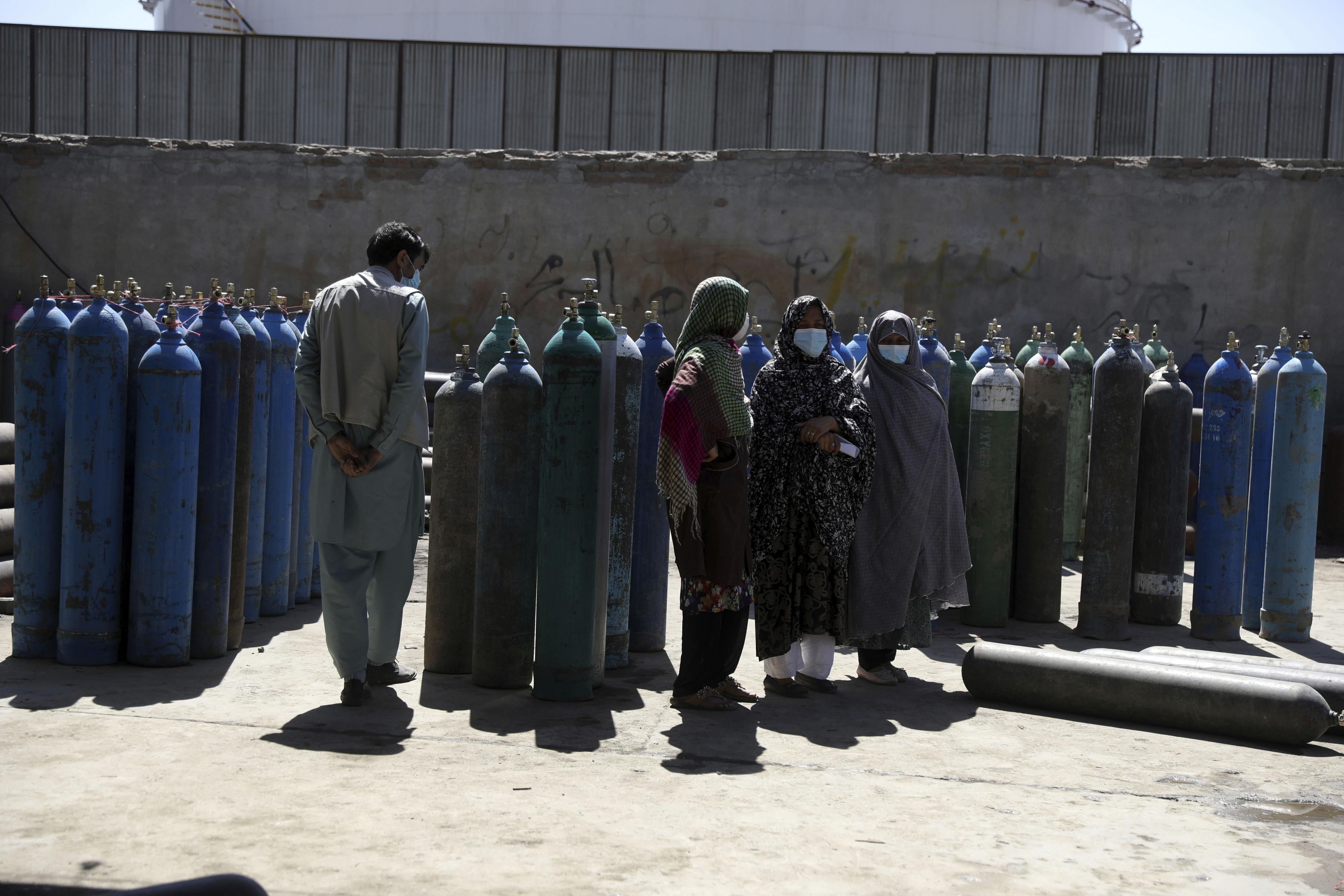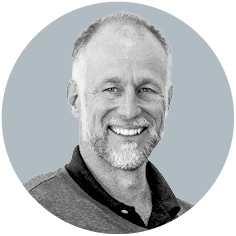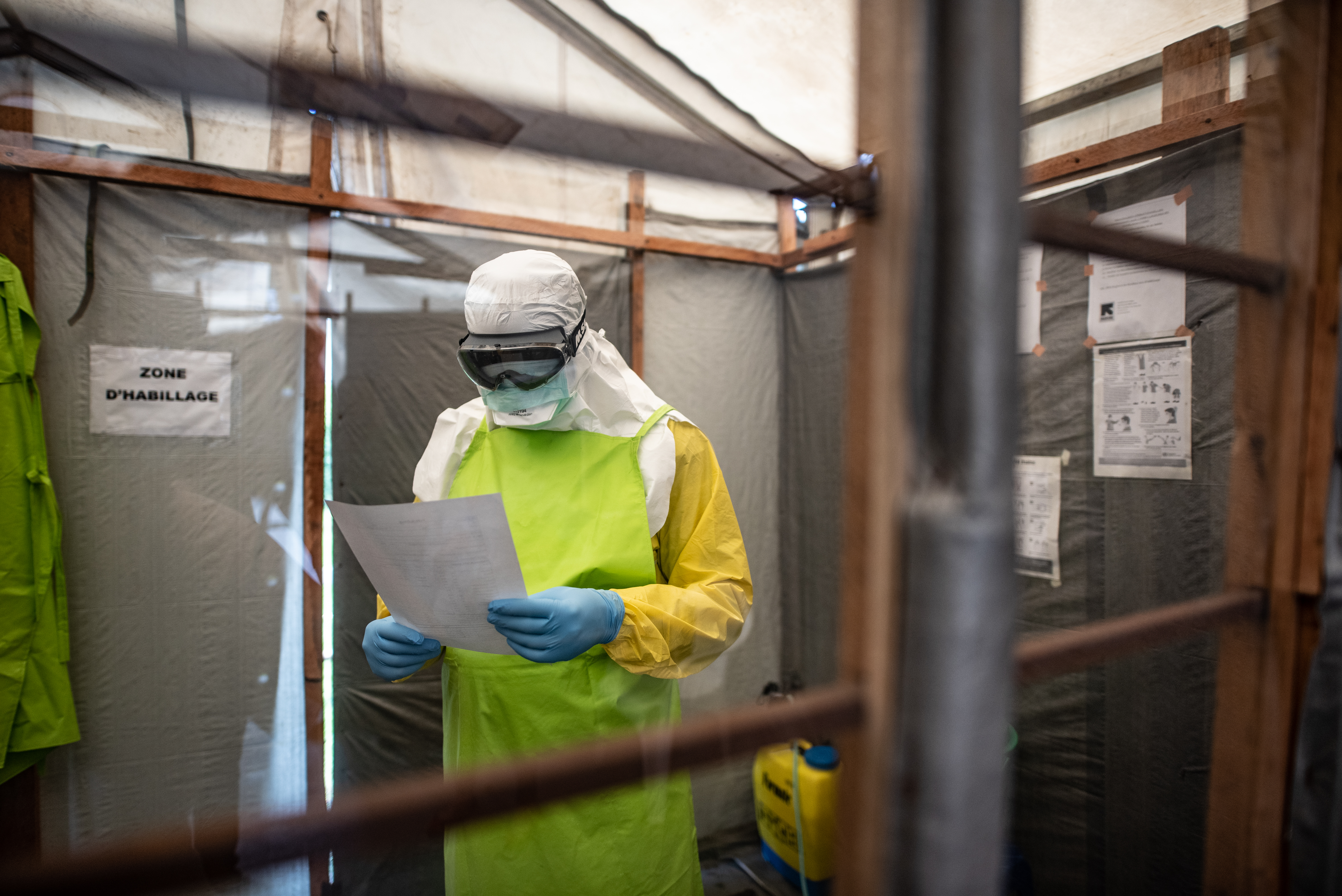Ebola
A turning point

When a diseased priest from South Kivu arrived in the city of Goma on 14 July, it marked a turning point in the ongoing Ebola crisis. Ebola has been plaguing the eastern part of the country for more than a year now. More than 2,700 cases have been registered, and over 1,800 had died by mid-August. However, so far, none of these cases had reached a city like Goma with a population of over 1 million.
I first heard about the case through informal contacts. The UN soon confirmed it. Like others in the response community, I was not shocked to hear it. We all had expected this to happen – and sooner than it finally occurred.
In fact, the way the case developed even showed some positive elements. The nurses in the health centre that the priest went to did an excellent job. They immediately identified the case and isolated him. It was just as important that the patient, once he arrived in the city, went straight to the health centre. Like other non-governmental organisations (NGOs), the International Rescue Committee (IRC) has been training health personnel for exactly these situations. The health-centre staff were ready.
Unfortunately, the city then saw its second confirmed case. Moreover, active transmission occurred inside the city. A father of ten children had returned home from working in the Ituri province and began showing signs of Ebola on 22 July. However, he was not transferred to an Ebola treatment centre until 30 July. The time lag between when he started showing symptoms and when he was finally isolated demonstrates the need to further ramp up training of health workers. In the meantime, the man’s wife and daughter have been confirmed as having the disease, signalling the first active cases of transmission in the city. This is a major cause for concern.
People move around, despite being exposed to the virus. Many do not go to health centres even though they are sick. According to the World Health Organization (WHO), too many Ebola deaths are still happening outside of Ebola treatment centres. One reason is a strong lack of trust, which is typical of any region after extended civil strife. The DRC Ebola crisis is a public-health emergency within one of the most complex, chronic and long-standing humanitarian crises in the world. The DRC is a war-torn country which has seen an estimated 5 million people killed since 1994, while 4 million have probably left the country. More than 13 million people are in need of humanitarian assistance in DRC, yet assistance is not reaching all those in need.
In response to the first Ebola case in Goma, the attention of the international media rose. What was more important, though, was the response of the WHO. It declared the Ebola crisis in the DRC to be a “public-health emergency of international concern” (PHEIC) on 17 July.
Strategic reset
PHEICs are only very rarely declared. The WHO does so when things are very bad. Indeed, what is happening in the eastern DRC is now the second biggest Ebola outbreak of all time, surpassed only by the 2014 outbreak in West Africa. To date, there is no sign of it stopping. Many members of the humanitarian community had long called for a strategic reset. We are now seeing it being implemented.
There is a real risk that this outbreak will go beyond the borders of DRC. That would entail serious public health and social consequences. The spillover risk to other countries is high: there are strong trade and family relations with Uganda. Thousands of people living in Rwanda work in Goma and commute back and forth every day, and Rwandan authorities have tightened controls. The outbreak risks are spilling over to other neighbouring countries as well, including South Sudan, Kenya and Burundi.
Ebola cases have indeed been reported in Uganda, but for now they have been contained. As in Goma, such spillovers were expected. Surprisingly, they did not happen sooner.
In this context, the PHEIC declaration basically confirmed what we had already known on the ground. The situation is extremely concerning. On the other hand, the PHEIC does make a difference in terms of media and donor attention. So far, a lot of money has been given, but no one expected the outbreak to last this long. Further funds will be required to sustain the response.
Another important development is the appointment of David Gressly as the UN emergency Ebola response coordinator in June. At that point, the UN spoke of a “level 3 emergency”. “L3” is the highest UN category of emergencies. Currently there are only four “L3” emergencies in the world. The others are Syria, Yemen and the cyclones in Mozambique and Zimbabwe.
Gressly is now the single point of contact for all international agencies involved in the response. His appointment has led to a change of the coordination structure. A broader humanitarian perspective was indeed needed, as the IRC and others had been demanding.
The importance of community engagement
Community engagement is especially important. After decades of war and conflict, people in the eastern DRC do not trust the authorities. Nor do they trust foreigners or any people who belong to social groups that are not their own. Mistrust has to a large extent thwarted the Ebola response. We must take into account the perceptions of communities about a response they perceive as being political, with the decision to cancel the national elections in the Ebola-affected areas confirming their suspicions. The use of the army and police force for protection of the government and UN health workers has further exacerbated this fear. The IRC and many other NGOs have called for this to be stopped, and since the appointment of Gressly, we are seeing a change in this policy.
The depressing truth is that Ebola is still spreading even though many international aid workers and international representatives were sent to the country in the past 12 months.
To tackle the Ebola crisis, we need the cooperation of the communities – and their trust. The way to achieve this is to respond to their feedback.
A core problem is that epidemic responses for highly infectious diseases such as Ebola are in general very vertical and very structured. Unfortunately, communities sometimes resent this verticality and oppose some of the rules. Good community engagement means that we need to adapt to their attitudes, often in very practical ways.
One example is that the IRC is moving away from big “triage” structures, which serve to prioritise the treatment of patients. The most urgent cases are the people who can be saved by immediate action. In Ebola outbreaks, patients get a first screening in health centres. Those who are suspected of being infected are isolated immediately. Communities find this procedure scary. One example is that in rural areas the IRC is moving away from big “triage” structures and replacing them with more informal pre-triage reception areas which reduces the hesitation patients may have of seeking care.
Furthermore, the IRC is trying to shift its response away from an Ebola-only focus. We notice that people are afraid of going to health centres because they think they are just dealing with Ebola, not treating other sicknesses. Beginning next year, we will offer what we call “wrap-around activities”. As a result, our health centres will support additional primary health care beyond Ebola. Ultimately, the key issues are no longer medical when Ebola continues to spread after months of interventions. The issues are community-related. We have innovative and effective new vaccines and treatments, but these have little impact if people are not accepting to use them. We must win the trust of the communities – and then we will be able to tackle the crisis.
Tariq Riebl is the IRC’s emergency field director, experienced in managing large-scale humanitarian responses, including in Yemen, Liberia, the Philippines, Ethiopia, Chad and South Sudan.
IRCDeutschland@Rescue.org












